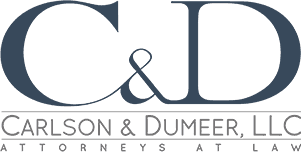What to Do After a Car Accident
Unfortunately, motor vehicle accidents have been on the rise since the beginning of the COVID-19 pandemic. This could be due to a significant decline in traffic stops that would prevent dangerous drivers from remaining on the road. 75,988 stops were made in 2020, a steep decline from the nearly 235,000 made in 2014.
However, the state of Connecticut plans to work on this. After 326 traffic-related deaths in 2021, state legislators met with the state police commissioner in January of 2022 to try to find a solution to the increase in accidents. In the meantime, there are some important steps for Connecticut drivers to take in the aftermath of an accident if they’re physically able to. Taking these steps can be beneficial if they decide to file a personal injury case against the other party later. These steps can also help them remain safe at the scene.
The Immediate Aftermath
The immediate aftermath of a motor vehicle accident is a scary time for anyone involved. People are often left wondering what just happened to them. Here are some steps to follow right after an accident to ensure the safety of those involved and to obtain necessary information:
- Check on yourself: Drivers should immediately check their body for injuries once the car has settled and they have calmed down. If serious injury has occurred, they should remain still to prevent further damage. Call 911 if a phone is easily accessible.
- Check on your passengers: Drivers should next check on any passengers if they are able to move. Do not attempt to move any passengers that have suffered injuries.
- Get to safety: If the vehicle is still operating, drivers should move it to the side of the road. If it seems like it would be dangerous to move, they should leave it where it is and allow law enforcement to handle it. Drivers who can move freely after an accident should put some distance between themselves and the vehicle in case a fire starts.
- Call emergency services: Drivers should call 911 once they have reached safety if they have not already done so.
- Get information: It is important to exchange contact information as well as insurance information after an accident. Specifically, drivers should obtain the full names, license numbers, location of the accident, and vehicle model of the other party.
- Keep conversation minimal: At no point should a discussion of fault or the circumstances leading to the conversation occur while at the scene. Let insurance companies and the courts determine who is at fault.
Thinking Long Term
Building a successful personal injury claim starts at the scene of an accident. It is important for drivers injured in accidents involving another party to get as many records made as possible. Drivers should make sure that they provide as much information to law enforcement officers as possible to ensure a highly detailed police report. This report will be reviewed by insurance companies as well as the courts.
Anyone involved in such an accident should accept medical treatment at the scene. They should explain their symptoms in full to emergency services. They will also make a report including detailed descriptions of injuries and the care they administered at the scene of the accident. This reporting can be extremely useful in a personal injury lawsuit.
Collecting Evidence
People who are physically able should gather as much information as they can while at the scene of an accident. Photographic evidence, such as pictures of the overall scene, injuries, and damage sustained by the vehicles can be greatly beneficial in court. It is also important to collect contact information for any witnesses that are present at the scene because their testimony can be impactful.
What You Can Fight for in Court
Someone who is involved in an accident and gets injured may be eligible for compensation from the other party. This can be determined through a personal injury lawsuit against them. The elements that need to be proven in a personal injury claim are as follows:
- Establishing Duty: It must be proven that the other party owed a duty of care to the person suing them. In a case involving a motor vehicle accident, that duty would be driving safely. For example, drivers have a duty to stop at red lights, which keeps other drivers safe.
- Breaching the Duty: It must be proven that the duty was breached by the other party. If they ran a red light which resulted in the accident, that would be proof enough to show they breached their duty.
- The Claimant Sustained Injuries: For a personal injury claim to be successful, a claimant must prove that they sustained some sort of injury during the incident. The injury must be the result of the breached duty.
- Causation: These elements need to come together for a personal injury claim to work. It must be proven that the defendant’s breach of their duty of care to the claimant was the direct cause of the injuries the claimant sustained.
Damages
A personal injury lawsuit allows claimants to sue for compensation. The compensation they receive can be paid to them for many reasons, including:
- Property damage: In a car accident case, a claimant can sue for the cost of repairs made to their vehicles. They can also sue for the loss of their vehicle if it was damaged beyond repair. They may also choose to sue for damage to items within the vehicle at the time of the accident.
- Medical bills: Motor vehicle accidents often result in expensive medical bills. These expenses often make up a significant amount of the compensation they receive. This applies to future medical bills as well, such as physical therapy.
- Lost income: Car accident victims may be out of work for a while if they sustain serious injuries. They can sue for lost wages and receive the amount of money they would have earned as compensation.
- Pain and suffering: Pain and suffering is one of the most common damages people fight for in personal injury lawsuits. It’s a difficult thing to quantify, but a personal injury lawyer can help. By collecting information from the healthcare providers who worked on their client, such as the necessary treatment and medication, a lawyer can help that client fight for the compensation they deserve.
- Emotional distress: Motor vehicle accidents often result in a significant amount of emotional distress for the people involved in them. They may experience terror or post traumatic sense. They can be compensated for these experiences.
When Should a Claim Be Filed?
In Connecticut, the statute of limitations on personal injury lawsuits is 2 years. This means that a claim must be filed within 2 years of the date of the accident or resulting injuries. The courts may toss out a claim if it is filed after the statute of limitations has passed.
Don’t Fight Alone
Carlson & Dumeer, LLC can assist you with making a personal injury claim. If you have been in a motor vehicle accident caused by someone else’s negligence, you deserve compensation. We have an extensive network of legal professionals who we will work with to create a strong case on your behalf. With over 20 years of combined experience, we understand how serious such claims are. We will work tirelessly on your behalf to make sure justice is served. Contact us at (877) 795-5594 or online for a consultation.

